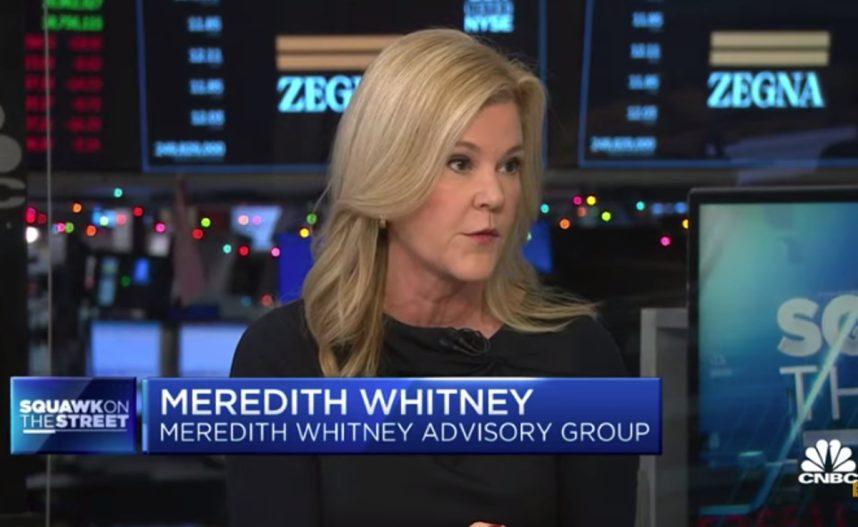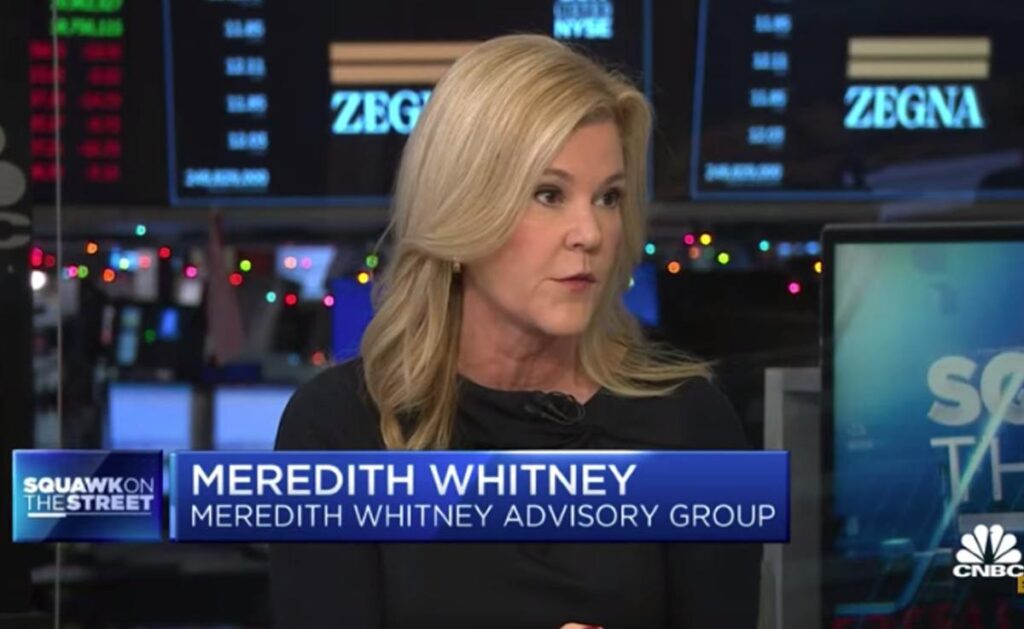Posted on: December 8, 2023, 02:11h.
Last updated on: December 7, 2023, 05:32h.
Financial markets analyst Meredith Whitney is no fan of the vast spread of legal sports betting. She made her position known during an appearance this week on CNBC.

Whitney — the so-called “Oracle of Wall Street” for predicting the financial crisis of 2007-2008, believes young men are spending too much time gambling on their phones and other electronic devices. She thinks that’s a partial cause for declining marriage rates and many men not having sex like they used to.
Whitney said on the business network’s program “Squawk on the Street” that she’s been analyzing consumer spending data for over 20 years, but she recently came across data points that she’s never seen before.
“Retail spending has been down all year, with restaurant spending, travel, services, and leisure being the bellwethers — they’ve been the strong suits — but the fastest-growing leisure spend is fantasy sports and online sports betting,” Whitney explained.
The negative impact is that it’s all young men. I paralleled that with Pew Research that says that 63% of young men are single. That’s the highest it has ever been,” Whitney continued.
“Fifty percent of those young men have no interest in dating, not even casually. And 30% of young men said they have not had sex in over a year and don’t seem to care,” she added.
Sports Betting Data Points
Drive Research, a New York-based market research company, reported in August that online sports betting demographics skew younger, male, and more affluent.
The Drive team concluded that nearly half (45%) of online sports bettors are aged 23 to 34, and nearly seven in 10 are male. A little more than half possess a college degree or higher, and two in three have an annual income of at least $50,000.
The study found that about 92 million US adults are participating in the legal sports betting industry in the US. That’s not necessarily a good thing, Whitney says.
The woman who gained fame for forecasting the housing crisis believes fewer marriages and young men finding pleasure in sports gambling instead of women or a partner could have negative economic consequences in the future. Low household formation rates, Whitney said, will limit the number of buyers when older generations look to downsize.
“Who are the buyers going to be?” Whitney asked.
Texas, California Could Worsen Problem
Sports betting began expanding outside of Nevada after the Supreme Court in May 2018 struck down a federal ban that had limited single-game sports gambling to Nevada. The law — the Professional and Amateur Sports Protection Act (PASPA) of 1992 — grandfathered in Nevada sports betting while barring new states from legalizing such gambling.
Since SCOTUS overturned PASPA, more than 30 states and DC have passed laws to regulate sports betting. But the nation’s two most populated states — California and Texas, jointly home to nearly 70 million people — haven’t yet moved to allow sports betting. Florida, the country’s third most populated state, only this week commenced sports betting.
Whitney believes her sports gambling concerns as they relate to young men will only worsen in the coming years, as more states bring more players into the legal fray.
Homebuilders are smart. They’re building a lot of rental properties,” Whitney concluded.




